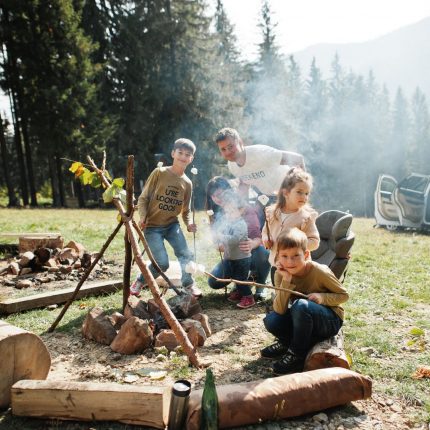3 Strategies to Nurture Your Child’s
Musical Intelligence
Rather than launching your child into music lessons at the first opportunity, consider three strategies for nurturing your child’s musical intelligence at home that will make future music lessons more fruitful.
Play Recordings of Great Music
When I was young, my mother would often play recordings of classical music. I particularly remember being entranced by Prokofiev’s Peter and the Wolf when I was no more than three or four years old. By the time I was six or seven, I was playing recordings of Beethoven symphonies more often than my parents!
Playing recordings of great music is a wonderful way to nurture your child’s musical intelligence. But what is “great music”? Of course, it’s in the “ear of the beholder.” That said, it doesn’t hurt to start with classical music. It’s called “classical” for a reason, after all! That said, there is “classical music” in every genre – from jazz to blues to country to rock. There is classic jazz like Miles Davis, the classic blues of Robert Johnson, the great country tunes of Dolly Parton, and of course, The Beatles.
Get Rhythm
Rhythm is one of essential roots of music (the other is song). An easy way to stimulate your child’s sense of rhythm is by having a couple of percussion instruments in the house. Make up rhythms together, play them to the beat of favorite music, or create a mini drum circle.
Another excellent way to develop your child’s sense of rhythm is through dance. Dancing not only teaches rhythmic fundamentals such as how stay in time to a beat, it demonstrates that there’s nothing to be ashamed of in moving the body rhythmically. This helps keep a natural sense of rhythm alive that your child can draw upon later, if and when they begin formal musical studies.
Sing!
Song is the other essential root of music. Take advantage of it by singing with your child. Even if you don’t think you’re a good singer, you can help your child learn to sing by encouraging them to sing along to recordings of their favorite kids’ songs, and maybe later to music they discover by themselves.
Like dancing, by singing with them you demonstrate that expressing oneself vocally is both natural and fun, and impede any self-consciousness they may feel about it. In fact, you are more likely to achieve this if you don’t sing very well!
Listen, Move, Sing…
Nurturing a musical child is not difficult. By exposing them to music regularly and consciously, being rhythmic with them, and singing with them, you will nurture a musically intelligent child, with all the mental, emotional and social benefits that brings. Even better, you can begin doing all these things from an early age. By the time your child is six or seven they may be yearning to play an instrument, and ahead of their peers who haven’t had the rich exposure to music that you have provided them.
Doug Hanvey enjoys nurturing musically intelligent children at the Portland Piano Lab in Portland, Oregon.
Latest Posts

As homeschooling continues to grow in popularity, more parents are taking on the challenge of providing a comprehensive education that not only meets academic standards but also prepares their…
Read more >
June has come and gone, and summer is in full swing! Whether you're traveling this summer or staying close to home, we hope you're enjoying this time with your family. We wanted this month's…
Read more >
Summer is an all-around favorite season for most people. In the U.S., it’s even more exciting for many of us since we get to celebrate Independence Day! The Fourth of July is a wonderful…
Read more >


